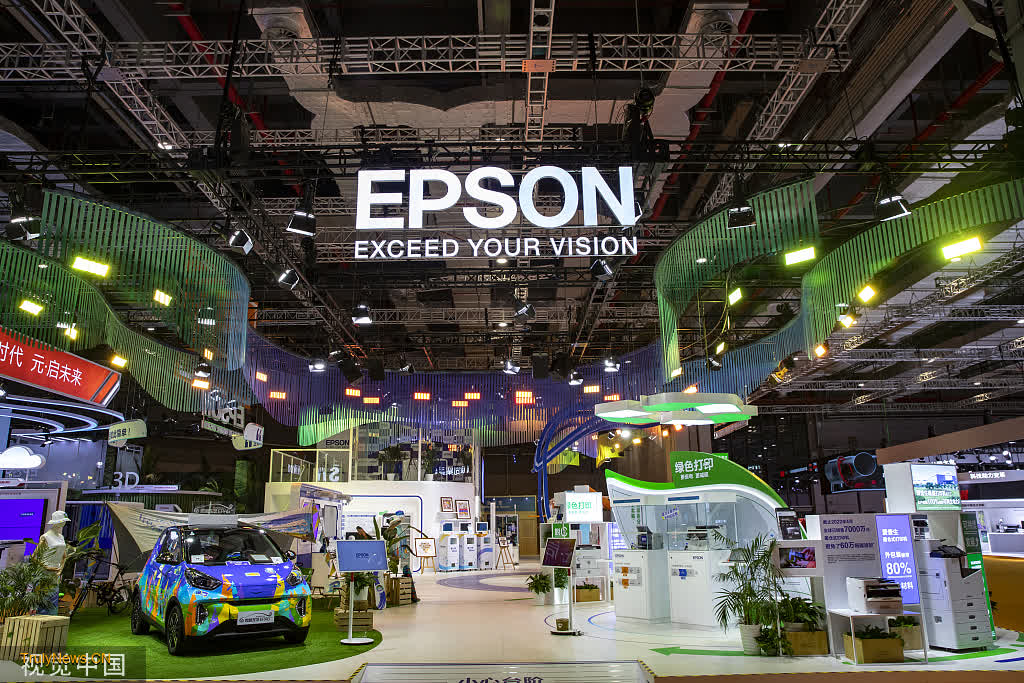
Seiko Epson Corp will intensify efforts to expand its presence in China by strengthening cooperation with local partners, and plans to offer more environmentally friendly products in the world’s second-largest economy, a senior executive of the Japanese electronics company said.
Tetsuya Iwasaki, CEO of Epson China, said in an interview with China Daily that the Chinese market plays a significant role in Epson’s global roadmap, with print heads, robotics and electronic components businesses accounting for a high proportion.
He said the company’s print heads business is gaining momentum in China, with the growth rate reaching about 10 percent, promising immense development potential.
“If foreign-funded enterprises want to succeed in China, they need to actively integrate into the Chinese market,” Iwasaki said.
He said the company will step up localization efforts and introduce to the global market innovative achievements from China that are in accordance with local conditions.
For instance, the company has rolled out a WeChat cloud printing service to satisfy the needs of Chinese users who are inclined to communicate through the instant messaging platform.
He said the Chinese authorities have attached great importance to fostering new quality productive forces and emphasizing the key role of technological innovation, which coincides with Epson’s “efficient, compact and precision” philosophy.
Iwasaki said China’s intensified push to advance high-standard opening-up has injected strong confidence into foreign companies, including Epson.
The Japanese company will expand its cooperation with local partners in China and innovate business models constantly to better cater to demand from the Chinese market, he added.
According to Epson’s Environmental Vision 2050, the company seeks to become carbon-negative and eliminate the use of exhaustible underground resources such as oil and metals by 2050.
Iwasaki said Epson’s vision is consistent with China’s dual-carbon goals and in line with the concept of green and sustainable development, and the company has made great efforts toward environmental protection.
Epson, present in China for more than 40 years and one of the first multinational companies to enter the Chinese market, has grown and developed in tandem with China during the period, witnessing rapid growth in the fields of print heads, robotics and inkjet printers. Iwasaki said the company’s success in the Chinese market remains crucial to its global strategic layout.
China has rolled out multiple policies to attract foreign investment. The government released an action plan proposing 24 measures in March, including expanding market access, fostering a level playing field and facilitating the flow of innovation factors.
Experts said China’s continuous innovation in the field of mobile internet and digital transformation has brought about new opportunities for multinational corporations like Epson.
Data from the Ministry of Commerce showed that foreign direct investment, or FDI, into the Chinese mainland, in terms of actual use, stood at 412.5 billion yuan ($56.7 billion) in the first five months of this year.
The manufacturing sector attracted 28.4 percent, or 117.1 billion yuan, of the total FDI inflow, up 2.8 percentage points from the same period last year.
Foreign companies have accelerated their localization steps in China in recent years, while high-tech industries and advanced manufacturing have become important sectors for foreign investment in China, said Zhang Jianping, director of the China Center for Regional Economic Cooperation, which is part of the Chinese Academy of International Trade and Economic Cooperation.
The country’s measures to boost its foreign investment inflow have demonstrated its determination to high-standard opening-up and in attracting multinational companies to participate in the construction of Chinese modernization, Zhang said.
He added that the implementation of a new round of opening-up measures, such as the Foreign Investment Law, the shortened negative list for market entry and pilot free trade zones, have created favorable conditions for foreign businesses to invest in China.